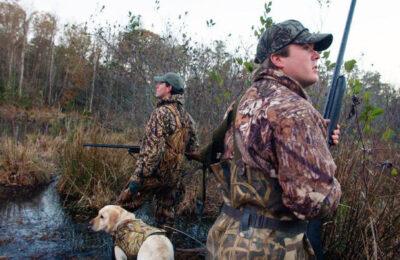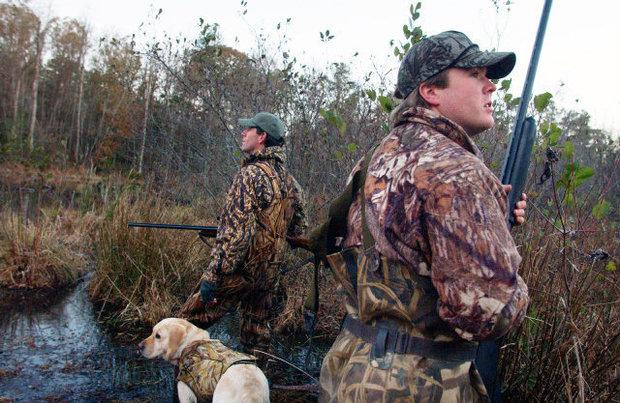
Image source: newsobserver.com
Property rights are once again under attack in America, and the latest example might be among the most ridiculous.
A Virginia landowner and avid outdoorsman is suing the county for the right to entertain friends overnight on his own 86-acre farm on hunting excursions. Joseph R. Ferguson Jr. maintains that property owners have at least a certain amount of sovereignty over the activities that take place on their own land.
The Isle of Wight County incident began after Ferguson permitted a hunting friend to park a camper on the spacious farm and spend the night. County officials, though, claim that parking the RV on the farm constituted the creation of an “unauthorized campground.”
The Rutherford Institute, a civil liberties organization, sued and is urging the Isle of Wight County Circuit Court to reject what it feels is a misinterpretation of the unauthorized campground law and to recognize Ferguson’s property rights.
Ferguson is reportedly an avid outdoorsman who frequently invites friends over for hunting excursions on his land. The 86-acre farm is mostly wooded and zoned for agricultural use. The Outback RV Trailer is owned by a friend with a physical disability and was parked nearly 200 feet from the roadway which abutted the farm.
But after the seemingly innocent and legal hunting weekend, Ferguson received a letter of complaint from the county. The letter stated that the camper parked on the private property violated a zoning ordinance which prohibited recreational vehicles being used as “residences.” Since the camper was serving as temporary living quarters, Ferguson had unwittingly turned his farm into a temporary campground.
Said Rutherford Institute President John Whitehead:
Cases such as this one are becoming increasingly common across the country as overzealous government officials routinely enforce laws that undermine the very property rights enshrined in the U.S. Constitution. Whether you’re talking about laws that prohibit smoking a cigarette inside one’s apartment, hosting a Bible study in one’s backyard, or growing organic vegetables in one’s front yard, the government’s ongoing disregard for private property brings us full circle, back to that pre-Revolutionary era when colonists had few to no rights whatsoever within their homes.
Joseph Ferguson appealed the dictates in the letter to the Wight County Board of Supervisors, but did not garner a satisfactory response. The farm owner contended that the RV camper did not violate the unauthorized campground law because it did not constitute a residence nor was it a commercial endeavor. Rutherford Institute attorneys involved with the Virginia property rights lawsuit are seeking a court declaration affirming that the farmer has the right to occasionally camp on the property himself as well as with friends and family.
The Virginia man also noted in the legal filing that county ordinances were preventing him from making “normal and unobjectionable use” of his wooded rural property for camping in either an RV trailer or a tent.
An excerpt from the property rights lawsuit reads:
“The plaintiff inquired of the defendant county what steps were necessary to allow him to set up the RV trailer on his property so that he or his friends could make occasional use of the trailer in connection with hunting on the property. [A county official] informed the plaintiff that he would need a Conditional Use Permit for operation of a ‘campground’ on his property and that the application fee alone would be $1,350.”
Following that line of thinking, Ferguson would have been guilty of operating an unauthorized hotel if his buddy had slept in the guest room.
Do you think the property rights of the Virginia landowner were infringed upon in the Isle of Wight County incident?
Sign up for Off The Grid News’ weekly email and stay informed about the issues important to you
